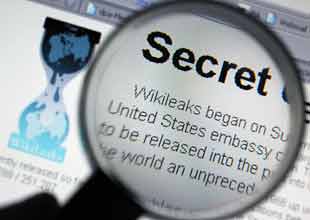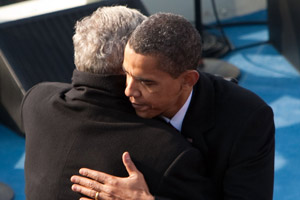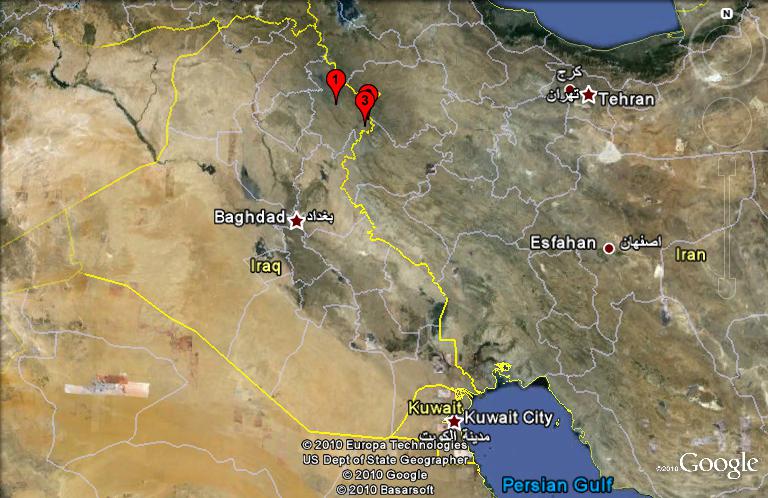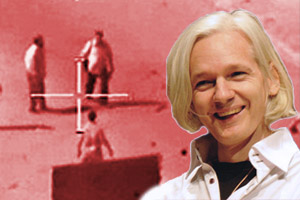In August 2009, weeks after three US citizens (including Mother Jones contributor Shane Bauer) were snatched by Iranian forces while hiking in Kurdistan, near the Iranian border, the US sought advice from France on how to free them. At the time, the French government was working to secure the release of one of its own citizens, Clotilde Reiss, and, according to diplomatic cables released by WikiLeaks, French officials opened their playbook to State Department official Kathleen H. Allegrone. Summarizing her meetings with two French officials, President Nicolas Sarkozy’s strategic affairs advisor Francois Richier and the Ministry of Foreign Affairs’ Middle East director Patrice Paoli, she wrote:
The French approached their hostage situations in Iran by first seeking an immediate, behind-the-scenes resolution before the Iranians brought charges against their captives, and then, once that approach failed, by adopting a two-pronged strategy: (1) relentlessly publicizing the cases with repeated employment of key words chosen carefully to put the Iranians on the defensive, and (2) constant exertion of diplomatic and political pressure, with the help of allies, in the form of regular demarches in Tehran and convocations of Iranian Ambassadors in European and Middle Eastern capitals.
The French officials stressed the importance of enlisting allies that might have Iran’s ear, and said they had quickly reached out to Syria after Reiss was detained. Similarly, Richier said the French had made sure to explicitly thank Syria when Iran freed Nazak Afshar, a French embassy employee held briefly by Iran. “Of course we don’t know if the Syrians did anything,” Richier said, “but we wanted to thank them anyway. It should at least confuse the Iranians.”
The French officials told their American counterparts that the Iranians would likely advise the US government, through the Swiss, to “remain calm and quiet” while the Iranian legal process moved forward. The French officials advised the opposite. “Be vocal,” Richier said, “even more so if the Iranians ask you not to be.” Paoli warned: “They are the masters of stalling tactics.”
Ignore this warning, they insisted, because silence will not expedite the process. They argued that USG statements and actions can sway and even mobilize public opinion within Iran. Whether or not we choose to speak out, they warned, the Iranians will energetically disseminate fabricated accusations.
The French officials cautioned that it would be difficult to even ascertain which power center in Iran was in control of the Americans and that Iran might attempt to use the hostages to blackmail the US government, potentially as a bargaining chip over the regime’s nuclear program.
They may try, for instance, to drag out the cases of the American and French hostages through the US/EU late September deadline for a response from the regime on the nuclear issue.
Among other things, the officials said, the Iranians might seek a trade for Majid Kakavand, who’d been arrested in Paris in March 2009 at the request of the Department of Justice, which was seeking his extradition to the US. The Iranian citizen was suspected of supplying Iran with dual-use technologies with military applications.
This year, in early May, a French court denied Kakavand’s extradition to the US and set him free. Shortly thereafter, Iran freed Clotilde Reiss, the student who was accused of spying for France, prompting widespread speculation that the French and Iranian governments had indeed brokered a trade.
One of the American hikers, Sarah Shourd, was released on bail in September. Bauer and a third American, Josh Fattal, are still being held in Iran on espionage charges. As the State Department cables suggest, the hikers appear to be little more than pawns in Iran’s geopoltical gamesmanship. Ominously, Allegrone wrote in her cable, relaying her conversation with one French official, “this familiar Iranian tactic—hostage-taking as political blackmail—will only increase in the near future.”
















